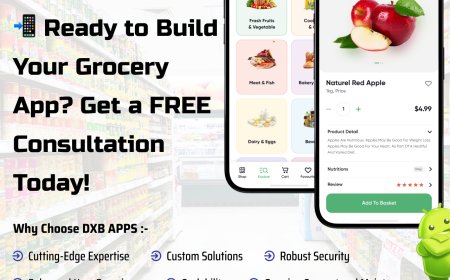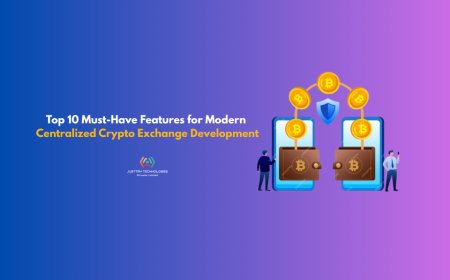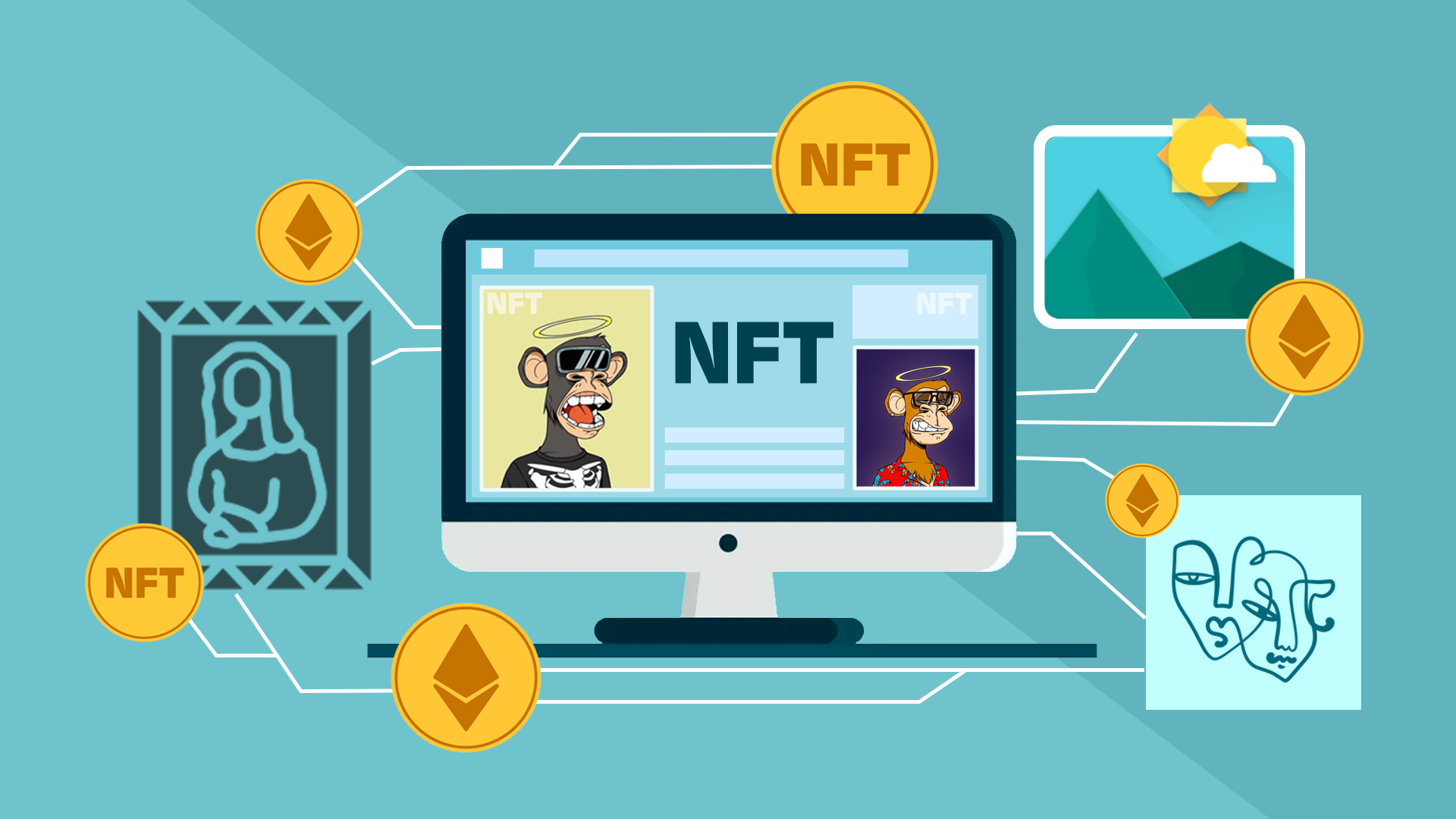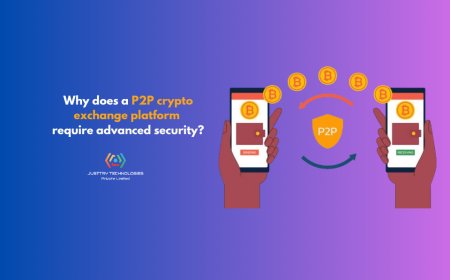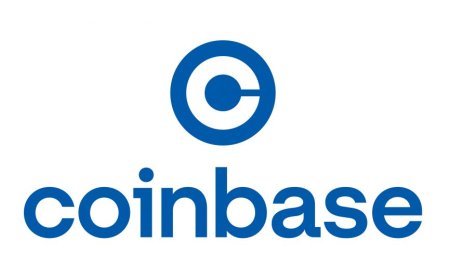10 Reasons App Development Companies in Kuwait Are Dominating the GCC Market
App development companies in Kuwait are more than local providers—they’re strategic regional partners. Combining cultural insight, payment mastery, regulatory understanding, bilingual UX, and cross-GCC success, they deliver strong ROI at competitive prices.

Introduction: Kuwaits Mobile Innovation Upsurge
Kuwaits tech scene is rapidly evolving. Smartphone penetration is over 90%, and digital transformation is a national priority across banking, retail, logistics, healthcare, education, and governmentmaking the country a powerful springboard into the wider Gulf Cooperation Council (GCC) market. Leading the charge are local app development companies in Kuwait, whose deep cultural understanding, agile delivery, and regional networks are enabling them to outpace competitors and deliver apps that resonate across diverse audiences.
This article explores 10 compelling reasons these Kuwait-based companies are dominating the GCC landscape. Youll also find insights into partner selection, common success metrics, 5 frequently asked questions, and a conclusion to power your decision-making.
1. Cultural Fluency & Multilingual UX
Kuwaiti firms design apps that natively support both Arabic and English, including right-to-left (RTL) scripts, regional dialects, cultural iconography, pricing in local currencies, and integration with user behaviors. This cultural fluency builds engagement and trustespecially when scaling into Saudi Arabia, UAE, and Bahrainwhere Kuwaiti apps often feel more seamless than foreign-built alternatives.
2. Regional Payment Integration Expertise
Kuwaiti developers are well-versed in integrating local and GCC payment systems, such as KNET, mada, Benefit, and Visa/Mastercard/PAY with Apple Pay and Samsung Pay. Seamless in-app payment experiences reduce friction and increase adoptionan edge that sets Kuwaiti teams apart when entering markets across the GCC.
3. High-Quality Standards Despite Cost Competitiveness
Development costs in Kuwait tend to be 2030% lower than in Dubai or Riyadh. Yet local companies maintain high standards in UX design, performance optimization, security audits, and testing. Clients get the best of both worlds: premium output at transparent, competitive pricing.
4. Deep Understanding of GCC Regulations
Kuwaiti teams operate with first-hand knowledge of regional compliance requirementsdata residency, user privacy, telecom standards, and app store rules across app marketplaces. They add built-in protections like encryption, role-based access, and compliance workflows from day one.
5. Agile Hybrid Delivery Models
Kuwaiti firms combine onshore presence for design, management, and Go-to-Market with offshore development nodes in India, Egypt, or Eastern Europe. This mirrors the best international practicesensuring speed, agility, and time-zone alignment while controlling costs.
6. Regional Cloud & Infrastructure Savvy
Successful GCC apps rely on low-latency infrastructure, cloud regionalization, global CDNs, and auto-scalingcapabilities Kuwaiti developers possess. They configure AWS UAE zones, Azure Middle East, and GCP deployments to ensure availability and compliance across Riyadh, Abu Dhabi, and Bahrain.
7. GCC-Wide Partner Ecosystem Access
App companies in Kuwait often have established relationships with app stores, regional ad agencies, logistics providers, and local influencers. These connections help accelerate marketing, distribution, and partnerships when launching across Gulf countries.
8. Experience with GCC-Specific Use Cases
From telehealth solutions during Ramadan to fintech wallets for international users, Kuwaiti firms have already built apps tailored to local customs, religious periods, and consumption patterns. Their learning from Kuwaiti pilots is readily transferableand effectiveacross the GCC.
9. Multimodal UX & PaymentReady Innovations
Kuwaiti developers are early adopters of features like QR payments (PayBy), NFC, voice bots, social sharing, and event-triggered delivery. This keeps apps ahead of the curve, offering smooth experiences across citywide rollout and seasonal peaks.
10. Proven Track Record with GCC Clients
Major banks, telecoms, and retailers in Kuwait frequently deploy mobile apps that garner 4+ star reviews and visibility in UAE or Saudi app stores. These success stories act as live credentials when pitching to new GCC-level clients, reinforcing Kuwaits gravitas in the regional market.
Choosing the Right Partner
-
Review cross-GCC case studiesUAE, KSA, Bahrain, Qatar
-
Check UX excellencebilingual support, cultural nuance, speed
-
Understand tech stackReact Native, Flutter, native Android/iOS, backend APIs
-
Evaluate infrastructurecloud deployment, CI/CD, auto-scaling, observability
-
Test flexibilitycan they support evolving needs, pilot runs, and rollout phases?
KPIs to Expect
-
Time-to-market: 4050% faster than regional averages
-
User ratings: 4.3+ in GCC app stores
-
Cost savings: 20?30% vs UAE-based outsourcing
-
Conversion uplift: Local payment integration lifts by 15?25%
-
ROI timelines: Returns on investment within 69 months
Frequently Asked Questions
1. How do app costs compare between Kuwait and Dubai?
Hourly rates in Kuwait are ~2030% lower, yet output quality remains strongmaking Kuwait an attractive nearshore choice.
2. Can Kuwaiti companies launch in UAE or KSA App Stores easily?
Yes. They manage metadata, Arabic translations, submission workflows, and GCC T&C compliance routinely.
3. Do they handle payment gateway certifications (e.g., mada, benefit)?
Yes. Many firms are fully certified with KNET, mada, Benefit, GCC Visa/Mastercard, and regional wallets.
4. How do they support Arabic-first experiences?
By starting UX design in Arabic RTL, with localized translations, fonts, date/currency formats, and regional content.
5. What types of apps are easiest to scale across GCC?
Fintech wallets, educational platforms, logistics tracking apps, digital marketplace solutionsespecially those with bilingual design and regional payment integration.
Conclusion: Kuwaits App Firms Leading the GCC Wave
App development companiesare more than local providerstheyre strategic regional partners. Combining cultural insight, payment mastery, regulatory understanding, bilingual UX, and cross-GCC success, they deliver strong ROI at competitive prices.
If you're targeting the Gulf marketwhether launching in the UAE, Saudi Arabia, or Bahraininvesting in a trusted Kuwaiti development partner will save time, reduce risk, and increase impact faster than working with distant or unfamiliar vendors. With the right local team at your side, scaling across the GCC becomes not just achievable, but achievable smarter.



